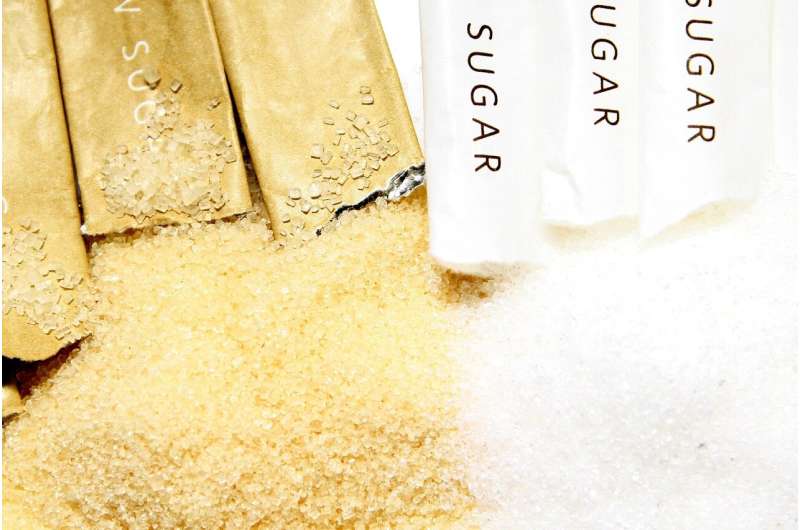The sweet taste of innovation

Would that ice-cold bottle of soda taste as refreshing, knowing that it contains 65 grams (5 tablespoons) of added sugar? With a new U.S. food-labeling policy set to kick in, public health groups are banking on the answer being "no." Meanwhile, food companies hoping to keep customers happy are searching high and low for sweet new molecules, according to an article in Chemical & Engineering News (C&EN), the weekly newsmagazine of the American Chemical Society.
Beginning Jan. 1, 2020, all packaged foods and beverages in the U.S. must display the new Nutrition Facts label, which includes the amount of added sugars and their percent daily value. The new policy results from accumulating evidence that too much sugar is associated with metabolic syndrome, a condition that can lead to type 2 diabetes and cardiovascular disease. Currently, the U.S. Food and Drug Administration recommends that added sugars comprise less than 10% of daily calories; for an adult male on a 2,000-calorie diet, this would be 50 grams (about 4 tablespoons) of sugar. But with many packaged foods and beverages containing more than this amount in a single serving, food companies and ingredients firms are actively seeking sugar alternatives, Senior Business Editor Melody Bomgardner writes.
Their search for low- or no-calorie sweeteners is complicated by several factors. Synthetic sweeteners, such as aspartame, have been used safely in diet products for years, but consumers increasingly distrust them. Many consumers prefer foods with natural ingredients, such as stevia. However, natural sweeteners are typically more expensive than synthetics. Another challenge is finding sweeteners that fully replicate the taste, appearance and texture of foods made with sugar. In many cases, combining two or more sweeteners, such as stevia and the natural sugar alcohol erythritol, can overcome each's shortcomings. A new sweetener called allulose, which exists in small quantities in figs and raisins, promises to deliver all the properties of sugar, but with one-tenth the calories.
More information: "The sugar wars are about to change your food label. Here's why," cen.acs.org/business/specialty … ge-food-label/97/i41
Provided by American Chemical Society





















